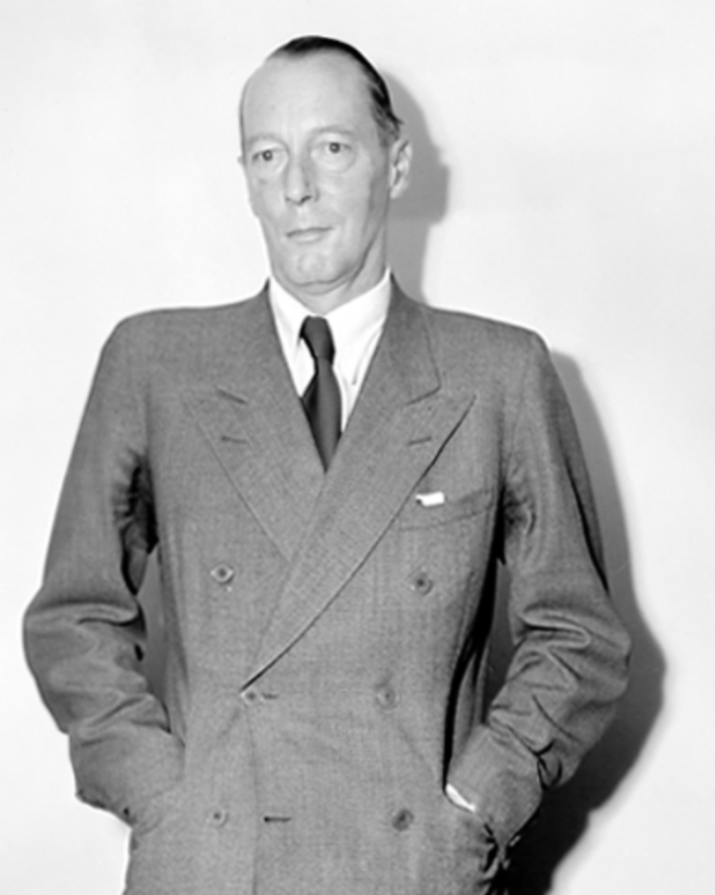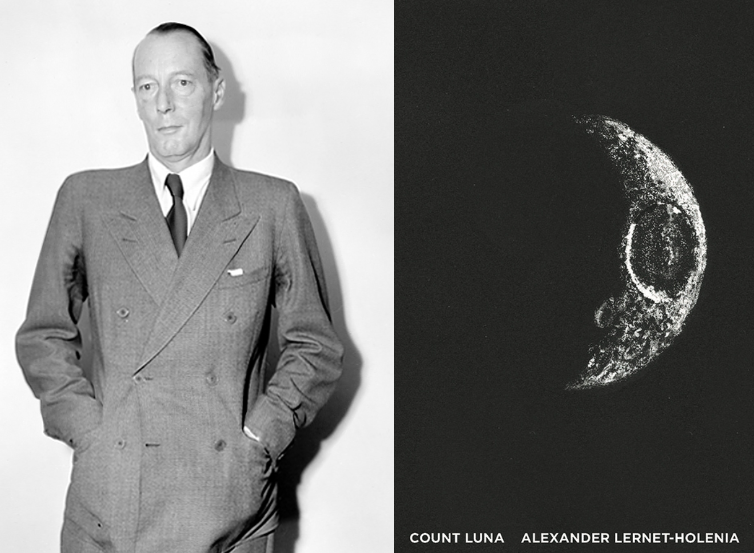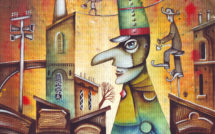

Translated from the German by Jane B. Greene.
Jessiersky rode up the valley of the Gihon, which was really the Schrein Brook, or Schreinbach, from which the village below Zinkeneck had taken its name. As they went on, the road became scarcely distinguishable from the brook bed beside which it ran; and finally the horses, though pulling with all their might, could not budge the carriage another inch uphill. Jessiersky got out, loaded the knapsack on his back, and had the driver pull the loden cape through the straps. He picked up his gun and, to be on the safe side, removed its cap and put it into his pocket. Then he took a last look at the carriage and the sweat-drenched palominos which were recovering their wind; and as the driver lowered the whip in his farewell salute, Jessiersky shouldered his walking stick, turned about, and began to ascend the slope of the Hochzinken.
His path led him first through sparse woods where the tall grass, interspersed with clumps and clusters of gentians, came up above his knees, then over upland pastures. All around him the Alps unfolded like an ocean of petrified waves that had been lashed up by some monstrous storm. Toward noon he reached the region of the gorges through which ran the boundary between his preserve and Koller’s.
Here the sun was beating down with all its force on the rocky peaks which rose up in a long row into the dark blue sky. The brilliance of the rocks dazzled and blurred Jessiersky’s vision: it was as though black shadows were passing by. A kind of luminous shower seemed to be pouring down from a storm of light, and if a real storm had gathered, its shadows would scarcely have been distinguishable from the darkness of the sky, its billowing white cloud towers from the bone-white towers of the cliffs. It was all as still as eternity. Only the grass, dotted with the spring flowers of the upland summer, with mountain cornflowers, forget-me-nots, and primroses, whispered in the sunny wind; and away in the distance, almost as if from nowhere, the tinkle of sheep bells could be heard. But no animal was in sight. A hut nearby — a kind of stable made of rough stones — which must have been built as a shelter for the sheep, lay in ruins, and the rotten wood of the caved-in roof gave off an odor in the noonday heat. Perhaps the herds were grazing along the margins of two or three pools or lakes of transparent emerald that had formed at the foot of the peaks in the titanic maze of moss-covered boulders.
To Jessiersky it seemed ludicrous that this awe-inspiring landscape should be registered in his name, but still more so that it should once have been owned by old Fries. Here, then, in this all but lunar landscape he would put a stop to the activities of the moon! Indeed, the scenery here resembled certain areas of the moon’s surface even more closely than did the land around the city of Luna on the map. Was it six months now or longer that he had been pouring over that map in his library when for the first time he had heard Luna’s footsteps passing high above his head — although probably it had not been Luna at all?
He threw down his pack and took shelter in the shade of the ruined hut. Surrounded with stinging nettles, which were growing rampant here, and a swarm of flies which refused to be beaten off, he took up his binoculars and carefully surveyed the landscape before him. He now discovered the sheep which were standing on strips of grass on the mountainside above the lakes. He also saw all sorts of game which, perhaps because of the heat, were moving very slowly, but nowhere did he discern any human being. Finally he got to his feet, picked up his goods and chattels, and walked for about an hour and a half down over the steep slope until he came to inhabited pastures. One of them, on which there were three herdsmen’s huts, he decided to make his headquarters.
Whereas the path over which he had just come had been very steep, the ground from here on sloped down rather more gently into the valley. But here too the rays of the noonday sun were beating down with merciless force. It was not only the sun, however, which had made its power felt here. Fire had also raged pitilessly, for the tops of most of the firs that were growing here and there along the slope had been seared by lightning. The cruel ravages of water were also evident. Probably during the same storms that had decapitated the trees, the meadowland had been ripped up to its yellow-brown depths by raging torrents, and in places there were piles of talus as high as a man which had been washed down from the peaks.
The hut standing highest on the slope being the first to which he came, Jessiersky walked in. He threw down his load and seated himself wearily beside the hearth. Except for his brief stop by the gorges, he had been under way since early morning. He took off his shoes. It was hot and musty in the hut, and in the adjacent stall, the cattle were pacing about and banging against the walls. From the room above under the roof, where the hay was stored, came a voice asking who was there. Jessiersky irritably called out to whomever it was to be silent, adding that if anyone wanted to know who was there he could come and see for himself. Whereupon a half-grown boy came sliding down from the hay loft. Recognizing Jessiersky, he greeted him and began at once to gather up the scattered possessions.
Jessiersky, meanwhile, remained seated by the hearth, stretching his aching legs and examining the blisters that had formed on his feet. Finally he stood up, walked to the door, sat down again on the threshold, and lighted a cigarette.
A kind of porch had been constructed here. The floor consisted of some planks which were raised up horizontally above the slanting ground of the pasture, and the roof, an extension of the hut roof, was supported by two wooden uprights. Not far away, by the fence, which enclosed a pile of cattle fodder, the so-called swath, a little stream of water was trickling out of a pipe into a wooden trough, and the mud all around it had been trampled by the hoofs of cattle. Nothing could be heard but the spring and nothing was stirring here or in either of the other two huts. Poor and miserable as they were, they seemed to have been built solidly and well. How many generations of mountain herdsmen they must have sheltered from rainstorms and the noonday heat! And the breath of the glaciers seemed to be still present in the wind that was blowing against the slope. They rose up in the distance, behind the rigid stony desert of the lesser peaks, now bathed in cataracts of light, now illumined by flickering sunbeams, now lost in billowing clouds, now swathed in smoky shadows.
Meanwhile, a young woman, who must have been in her room sleeping — for mountain herders do most of their work at night — came out of the hut. She came up behind Jessiersky, walking noiselessly on her bare feet, and greeted him. He turned about and glanced up at her fleetingly. Then, his eyes fixed once again on the distant glaciers, he announced that he would spend the night there. “And, by the way, bring me my field glass,” he added.
While she was getting the binoculars, he saw the boy, who must have left the hut by the stall door, run down over the pasture to the two other huts. From there he returned with two or three other young people and one elderly woman. They went into the hut, again through the stable door, and Jessiersky heard them behind him whispering with one another.
He had focused the binoculars first upon the ice fields, which at one moment were dazzlingly brilliant and the next a dull gray, then upon the misty stone ridges of the peaks, and finally upon the ancient fir trees farther off in the pasture. They were the last outposts of a forest that stretched from the foot of the pastureland down into a dark, ravine-like valley and its roaring stream. How old those trees really were it was impossible to say, but they must have been there for several centuries. Their roots coiled in and out of the ground around them like clusters of enormous snakes. Their branches were enveloped in moss and lichen, and their spiked tops reached up toward the sky like the points of lances. The stiff skeletons of some of the dead trees were still standing like gigantic whisk brooms, and one was completely hollow. It had an opening like a sentinel box, and the wood seemed thinner than a wasp’s nest, so that a person could poke holes in it with his bare fingers. Others, broken up into gray pieces, were lying in a maze of dead branches, resembling blackened whale ribs. The entire pile was resting on a bed of mountain fescue and hawkweed, mild vetch and lady’s-mantle, yarrow and spignet. Others, although reduced to shapeless fragments, were still surrounded with clouds of dark green needles. There was not a tree that, at its base, could be encircled by fewer than three men, not a trunk that did not divide into several trunks, not a cluster of trunks that had not branched out, like a huge chandelier, into enormous perpendicular arms. There was not one of these firs and pines that was not in itself a whole forest, some parts of it living, some rotting, some dead; deciduous trees had taken root and animals of all kinds sheltered in its glades and impenetrable thickets. The timber of any one of these trees would have sufficed to build a sizable boat.
As Jessiersky looked at the trees, one after the other, he began once more to ponder the question of their age. There were other trees elsewhere that were undoubtedly far older than these; the oaks in Germany, for example, a few of which may even go back to the days of the pagans; the araucaria in Mexico on the “Hill of Locusts,” the site of the summer residence of the hapless Montezuma and of the no less hapless Maximilian; or even the tremendous sequoias in California. But what made the firs here older than all other trees was the fact that their age was unremembered. In other words, even if their age could be recalled, no one had ever recalled it. It was impossible that one of the peasants who owned one of the three huts might have heard from his father’s father that one of these trees had been comparatively young when that grandfather was a boy. For the trees were not in actual fact so terribly old. But neither the grandfather nor the grandson spoke about the age of these trees, nor had they ever spoken about it, and this made the trees timelessly old. There were other timeless things here. In fact, from this point of view, everything was timeless.
Down at the edge of the forest, for instance, were the remains of a fodder shed on which Jessiersky kept close watch, imagining that Luna might have stationed himself there to keep an eye on the huts. And because of his long experience in using the binoculars, he could tell that the wood the shed was built of had been used before for other purposes. In several of the planks there were notches where other planks had been joined to them. But the other boards were not there and perhaps no longer existed. They may once have been part of the roof of a hut that had also long ceased to exist.
This excerpt is published by permission of New Directions Publishing. Copyright © 1955 by Alexander Dreihann-Holenia. Translation copyright © 1956 by Jane B. Greene. Copyright © 2020 by New Directions Publishing Corp.
Published on August 4, 2020.




